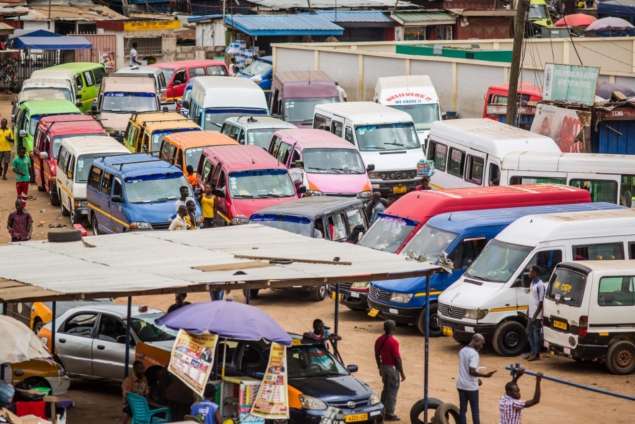The Regional Chairmen of both the Transport Operators Union and the Concerned Drivers Association of Ghana has announced their intention to consider a fare increment, effective March 7, 2024, in response to the recent hike in fuel prices across the country.
They highlighted the significant impact of the continuous rise in fuel prices on their livelihoods and the challenges in maintaining their operations.
“We expressed disappointment in the leadership for failing to address the concerns and implement fare adjustments to counterbalance the increased operational costs.”
Transport Operators Union and the Concerned Drivers Association of Ghana
The fare adjustments are deemed essential to ensure the financial viability of the transportation sector and to maintain the quality of service provided to the public.
“This has prompted us, regional executives, to consider fare adjustments as a necessary step to sustain our businesses”, the groups stated.
Additionally, the groups noted that the escalating costs of spare parts, particularly for maintenance and repairs, have severely affected their ability to keep our vehicles in optimal condition.
Furthermore, the Unions emphasized that their welfare has been significantly impacted by higher taxes imposed on the sector. This has put immense pressure on their earnings and made it increasingly difficult for them to cover their overheads and provide for their families.
The associations called on the government and relevant authorities to engage in constructive dialogue to address the challenges faced by the sector and implement fare adjustments that reflect the current economic realities. They warned that failure to address these concerns by March 6, 2024, would leave them with no choice but to increase fares.
The associations are proposing a 30% increase in transport fares effective March 7, 2024, as a measure to maintain the quality of service provided to the public. The fare adjustments are seen as essential to ensure the financial viability of the transportation sector.
“This fare adjustment is a necessary step to maintain the quality and efficiency of their services, benefiting both drivers and the commuting public in the long run.”
Transport Operators Union and the Concerned Drivers Association of Ghana
Acknowledging the detrimental impacts of these challenges, the Transport Operators Association revealed that they have conducted comprehensive consultations with various stakeholders, including relevant state agencies and other transport associations.
Effects of the 30% Increase in Transport Fares on Commuters
For many commuters, especially those with lower incomes, a 30% increase in transport fares could significantly strain their financial resources. This could lead to a decrease in the use of public transportation, as people may choose to use personal vehicles instead if they can afford it. This could also lead to an increase in the use of private vehicles, contributing to traffic congestion and pollution.
The increase in transport fares could make public transportation less accessible to low-income individuals and families, potentially widening the gap between those who can afford to use public transportation and those who cannot. This could exacerbate social inequalities in access to transportation services.
With a reduced number of users, public transportation services may face a decrease in ridership, leading to potential service cuts or decreased service frequency. This could make it more difficult for people who rely on public transportation for their daily commute to get to work, school, or other essential destinations.
In response to the fare increase, there might be an increase in fare dodging, which could lead to security concerns on public transportation. This could further deter people from using public transportation, leading to a decrease in ridership and potentially affecting the financial viability of public transportation services.
The reduction in public transportation use could hurt local businesses, as they may see a decrease in customers who rely on public transportation for their commute. This could potentially lead to job losses and economic downturns in areas heavily reliant on public transportation.
READ ALSO: Power Sector Issues Will Worsen, IPPs Warn























